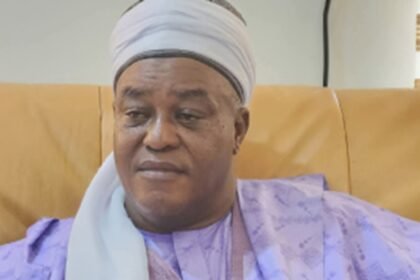The Nigerian Meteorological Agency (NiMet) has issued a flash flood alert for July 2025, warning that at least 20 states including Lagos, Edo, Benue, and Sokoto face significant flood risks as heavy rains intensify across the country. The alert has raised serious concerns over the preparedness of states to handle such disasters, especially after receiving more than ₦620 billion in ecological fund over the last 14 years.
Despite the recurring floods and the federal government’s disbursement of ₦622.15 billion between 2012 and February 2025 through the Ecological Fund, many states appear ill-equipped to mitigate flood damage. Experts and advocacy groups argue that these funds, meant to improve environmental resilience, have not been transparently used, leaving flood-prone communities exposed to devastation year after year.
NiMet’s recent flood risk bulletin highlights flash flooding threats in Sokoto, Kaduna, Zamfara, Yobe, Bauchi, Bayelsa, Jigawa, Adamawa, Taraba, Niger, Nasarawa, Benue, Ogun, Ondo, Lagos, Delta, Edo, Cross River, Rivers, and Akwa Ibom. Citizens in these areas have been advised to prepare for emergency scenarios by clearing drainage channels, turning off electricity and gas during storms, relocating if necessary, and staying alert to community warnings.
The fallout from poor flood control measures is already evident in several states. In Ondo State, torrential rainfall recently displaced families in communities such as Owo, Ilaje, Ese Odo, and Okitipupa, where homes, bridges, and farmlands were destroyed. In Niger State, floods have ravaged Mokwa town, raising the death toll and leaving a humanitarian crisis in their wake. Zamfara State has recorded over 58,000 victims in recent weeks, the highest reported across the country, followed by Kwara, Lagos, and Enugu.
Environmental experts, including the Africa Environmental Health Organisation and climate adaptation researchers, have criticized the lack of transparency in how ecological funds are utilized. They argue that the root issue is not just funding, but mismanagement, corruption, and the absence of long-term planning. Many states lack early warning systems, enforceable building codes, or adequate drainage infrastructure, which worsens the annual cycle of floods.
The federal government disbursed ₦277 billion to states between 2012 and 2016, and ₦300 billion from 2017 to 2022. In the most recent disbursement cycle from June 2023 to June 2024, states received ₦39.62 billion, while an additional ₦6.03 billion was shared in January 2025 alone. Top recipients included Kano, Lagos, Borno, and Niger; states that remain among the worst affected by flooding.
Experts like Afolabi Abiodun, President of the Africa Environmental Health Organisation, believe the continued destruction points to systemic failure. He questioned the status of past flood mitigation projects such as the River Niger channelization effort, which was abandoned years ago. Similarly, former President of the Nigerian Institute of Town Planners, Nathaniel Atebije, lamented the failure to implement dam agreements with Cameroon that could have helped control flooding along the River Benue.
Other professionals like Hakeem Mukhtar, a sustainability expert, and climate change researcher Abeeb Ajagbe, have called for independent audits of ecological fund usage and a shift toward community-driven climate adaptation planning. They emphasize that building resilient infrastructure, developing real-time early warning systems, and enforcing environmental planning laws are key to reducing the toll of future disasters.
According to a June 2025 report by SBM Intelligence, floods have affected 1.2 million Nigerians and destroyed over 180,000 hectares of farmland since July 2024. With floodwaters sweeping through 31 of Nigeria’s 36 states, and food insecurity on the rise, the urgency for action has never been greater. Rising inflation; partly driven by the loss of agricultural land, has pushed food prices to record highs, exacerbating an already fragile economy.
As another season of flooding unfolds, calls are growing for federal and state governments to ensure full transparency in the disbursement and use of ecological fund, enforce climate resilience policies, and prioritize the welfare of vulnerable communities. Without bold and accountable action, Nigeria’s flood crises may become even more catastrophic in the years ahead.







